Please support Game Informer. Print magazine subscriptions are less than $2 per issue
The Evolution of Kratos
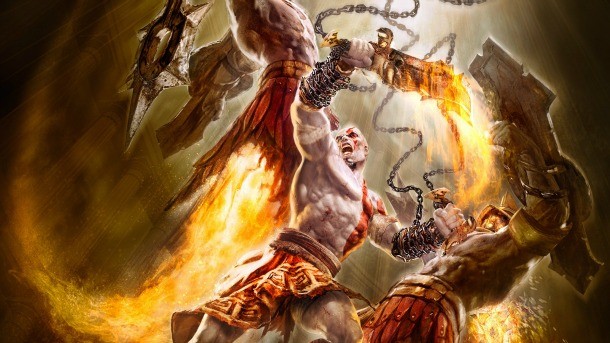
Born a Spartan, and raised to become one of Greece’s most formidable generals, Kratos’ iron will eventually collide with the pride of the Greek gods. But what makes this gaming legend tick? We examine the character evolution of one of Sony’s most memorable characters.
Needless to say, this story is full of spoilers. If you haven’t played the God of War series, read this at your own risk. And if you missed any of the game's on this list, check out the God of War Saga for PS3, which collects all five titles listed here.

God of War (2005)
A large amount of Kratos’ backstory is delivered during the first game in the series. When the original God of War begins, Kratos is already a fearsome Spartan warrior who grew a small band of 50 men into a fearsome army of thousands. However, Kratos’ army was massacred by a barbarian horde. In a last-ditch effort, a desperate Kratos offers his life to the service of the god Ares. Aware of Kratos’ enormous power, Ares wipes the Barbarians from the battlefield and takes the Greek warrior under his wing.
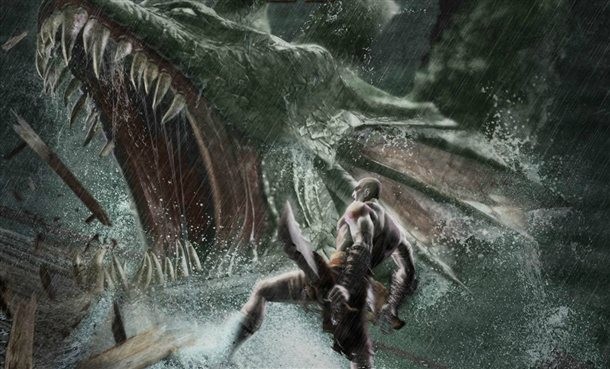
Ares grafts the curved Blades of Chaos – forged in the pits of Hades – to Kratos' arms and promotes him to be one of his most fearsome warriors. One day while Kratos was razing a small village, Ares puts Kratos into a blood-lust rage, forcing him to slaughter everyone in his path. When Kratos comes to his senses, he realized that two of his victims were his own wife and daughter. The village Oracle curses Kratos, binding the ashes of his dead family to his skin. Kratos’ milky complexion earns him the nickname, Ghost of Sparta. Thus begins Kratos’ 10-year journey of revenge against the god who “killed” his family.
By the end of the events of God of War, Kratos achieves his revenge and takes the throne as the new God of War. But there is much more to Kratos’ story.
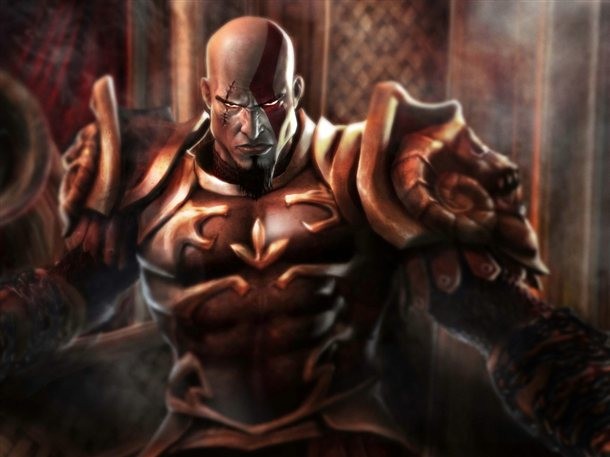
God of War II (2007)
At the start of God of War II, Kratos has become a ruthless god who treats many of Greece’s city-states ruthlessly. None of the other members of the Greek pantheon accept Kratos into the fold, so Kratos continues to do what he knows best – leading his army of Spartans on a conquest of the country. This forces Zeus to put an end to Kratos’ reign by tricking the god of war into relinquishing his power before sending Kratos to Hades.
Before he is confined to an eternity of torment in Hades, Gaia, the mother of the Titans, rescues Kratos and offers to ally with him in an effort to exact revenge against Zeus. Gaia and the Titans seek revenge against Zeus for his leadership in the revolt against the Titans ages before.
After killing the Sisters of Fate to change his own past, Kratos confronts Zeus, but before he can kill the father god, Athena jumps in the way and sacrifices herself. As Athena dies she reveals that Zeus is actually Kratos’ father. Kratos isn’t impressed, and readies the Titans for another revolt against the gods.

God of War: Chains of Olympus (2008)
Chains of Olympus is set during Kratos' 10-year service to Ares. When the world is plunged into darkness, Kratos learns that the sun god, Helios, has been abducted, and Kratos sets off on a quest to find him. Along the way, Kratos meets the goddess Persephone, who tells him that he can be with his daughter, Calliope, again in the fields of Elysium if he only relinquishes all the powers that the gods have bestowed on him. Kratos becomes a man again, and is reunited with his daughter for a short time, but he quickly learns that the denial of all his powers was all part of Persephone’s plan to use the Titan Atlas to destroy the world, so Kratos pushes away his daughter, abandoning her in order to seek revenge against the gods. Chains of Olympus was a bit of a side story, but it gave us a good glimpse of Kratos’ character, and showed us how far the warrior was willing to go to enact justice.
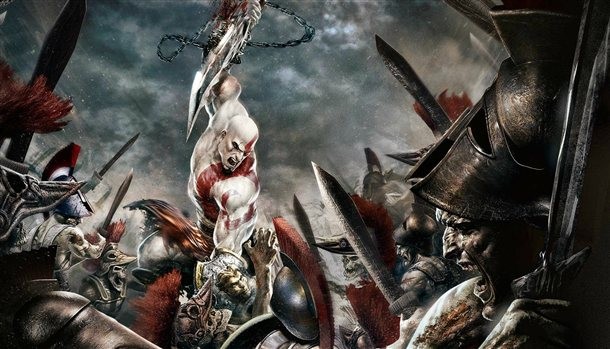
God of War III (2010)
God of War III does a nice job of tying up the story of Kratos’ revenge against the gods, and Zeus, in particular. Kratos systematically works his way through what’s left of the Greek Pantheon. Along the way, he uncovers the secret power locked inside Pandora's Box: the power of hope. Kratos uses this hope to finally kill his father, and then he shares hope with all of humanity – don’t worry, Kratos still looks angry as he does this. God of War III wraps up the console trilogy nicely, but it doesn’t add much to Kratos’ backstory. For that, we need to turn to the series’ second handheld title.
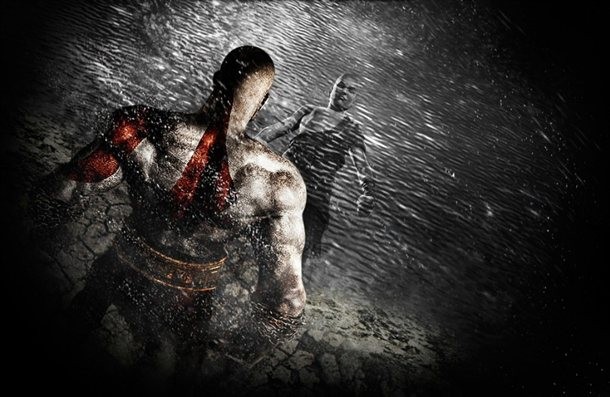
God of War: Ghost of Sparta (2010)
God of War’s second PSP game greatly expands on Kratos’ backstory. Before Kratos was born, an oracle foretold that a marked warrior would cause the destruction of Olympus. Ghost of Sparta also introduces us to Kratos brother, Deimos, a Spartan born with a birthmark similar to the iconic war paint Kratos has worn throughout the series.
When the Greek gods learn of Kratos’ marked brother, they believe he will be the doom of Olympus, so Zeus and Ares travel to Kratos’ hometown and kidnap Deimos. Kratos tries to stop them, but Ares brushes the Spartan aside, giving Kratos the scar he wears across his eye. Kratos eventually takes to wearing war paint that resembles his missing brother’s birthmark.
Years later, after Kratos has ascended the throne of the God of War, he undertakes a journey to rescue his brother who is chained inside the Domain of Death and being guarded by Thanatos, the god of death. Kratos frees his brother and the two of them do battle with Thanatos, but only Kratos walks away from the struggle. In the game’s closing scenes, it is revealed that after defeating Thanatos, many believe Kratos has become death itself, alluding to the ultimate destruction he will bring to the world and Olympus in God of War III.
That’s Kratos’ basic story, but God of War: Ascension is set during Kratos’ servitude to Ares, so we expect that there could be a few more twists to the warrior’s history that we haven’t learned yet.
Want more character histories? Check out our story on The Evolution of Ganon.










